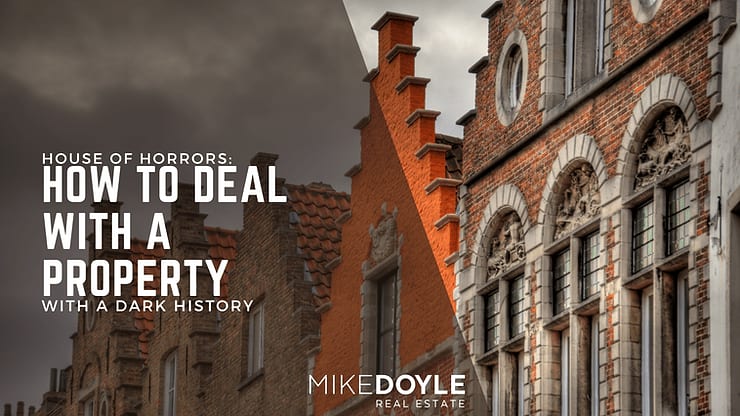Investing in real estate often involves navigating a myriad of considerations, but what if the property you're eyeing comes with a dark history?
While tales of haunted houses and mysterious pasts can be intriguing, they also bring unique challenges to the table. In this blog, we'll explore the nuances of dealing with a house of horrors and provide valuable insights on how to approach such distinctive real estate situations.
Understanding the Dark History: Uncover the Facts
The first step in dealing with a property with a dark history is to research and understand its past. Delve into local archives, historical records, and even talk to long-time residents. Knowing the details of the property's history will help you make informed decisions and better understand the context of any reported incidents.
Legal Considerations: Disclosure Laws
In many regions, there are disclosure laws that require sellers to reveal certain information about a property, including its history. Research local regulations to ensure you're aware of any legal obligations related to disclosing a dark past. This information is crucial for both buyers and sellers, providing transparency in real estate transactions.
Professional Inspections: Assessing the Property's Condition
A thorough inspection by qualified professionals is essential when dealing with a house of horrors. Structural engineers, pest control experts, and inspectors familiar with historical properties can help identify any issues related to the property's condition. This step is crucial for planning renovations and understanding the overall investment required.
Renovations and Restorations: Transforming the Narrative
If you decide to move forward with a property with a dark history, thoughtful renovations can help transform its narrative. Consider working with experienced contractors and designers who can revitalize the space while respecting its historical significance. This not only improves the property's condition but also adds value and can reshape its story.
Emotional Preparedness: Living with the Past
Living in a house with a dark history can be emotionally challenging. Whether you're an owner-occupier or an investor planning to rent or sell, be prepared for potential stigma associated with the property. Open communication and transparency can go a long way in managing expectations and addressing concerns.
Market Perception: Marketing a Property with a Story
When marketing a house of horrors, be strategic in emphasizing its positive aspects. Highlight unique architectural features, any successful renovations, and the steps taken to address the property's history. Target buyers who appreciate historical significance and are willing to embrace the property's past.
Conclusion: Navigating the Shadows
Dealing with a property with a dark history requires a combination of research, legal awareness, and strategic planning. By understanding the nuances of the property's past, adhering to disclosure laws, conducting thorough inspections, and approaching renovations thoughtfully, you can navigate the shadows of a house of horrors and turn it into a unique and valuable real estate investment.
Invest wisely, and remember: every property, no matter its history, has the potential for a brighter future.











